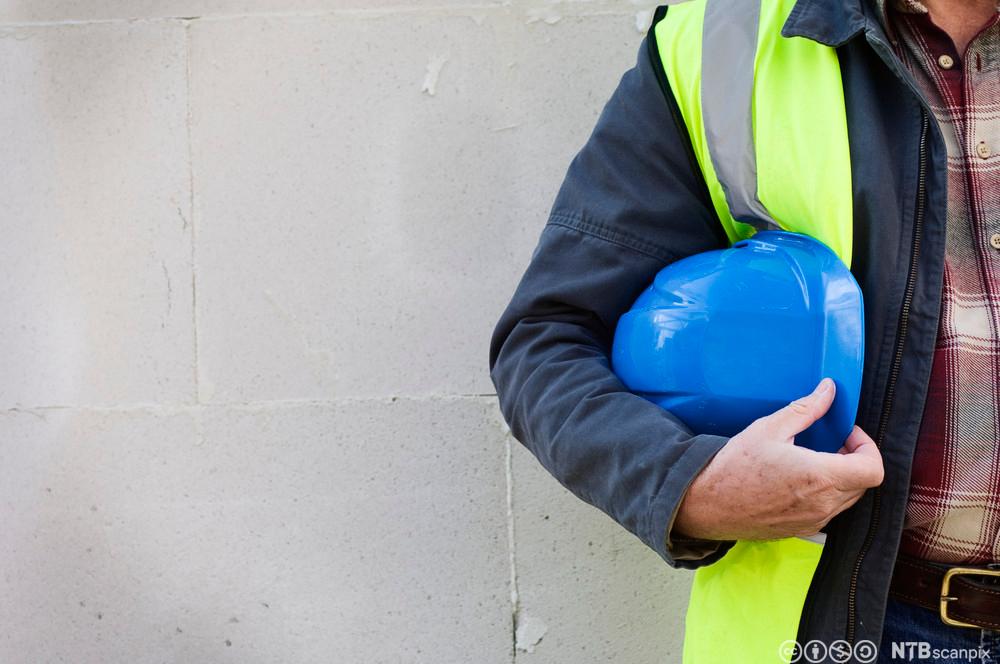Listening activity: Safety at Work

How many items of safety equipment can you think of in English? Give yourself two minutes to write a list of as many things as you can think of.
Collaborate as a class and create a mind-map of all of the different words.
Listen to the interview of Mae and Amy. They study mechanical trades and work two days a week in a factory which produces parts and equipment especially for the oil industry. The topic of this talk is "Safety at Work".
You can choose between listening to it with or without the transcript below.
Safety at Work
Tekstversjon
Safety at work.May and Amy are studying mechanical trades and work two days a week in a factory which produces parts and equipment, especially for the oil industry. Safety is very important in such a workplace and I am going to talk to them about safety precautions and equipment.
Interviewer: Good morning, Amy and Mae. How are you this morning?
M and A: Oh fine, thank you! Yeah, we're great! Thanks for asking. We're looking forward to showing you around our workplace and telling you about the safety measures we use around here.
Interviewer: That’s good! I wonder if you could tell me something about the personal safety equipment that you use when you work in the factory.
A: Yeah! Well, we always have to wear fire-resistant trousers and jackets, protective shoes and special T-shirts which rip easily if they get caught in a machine or something like that. However, you can use other equipment as well, depending on which job you are doing at the moment.
Interviewer: So, what you're saying is that special clothing and safety shoes are all that are normally required? You don’t have to wear a helmet or safety glasses?
A: Not really. You don't really need a helmet when you are working here, however, safety glasses have to be used when you're filing or polishing metals because this produces a lot of fine metal filings. We also have to use gloves to protect our hands, obviously.
M: We also do some welding jobs and then we have to use a welding mask and gloves to protect ourselves against the glare and the heat of the welding torch.
Interviewer: Oh, I see! Is hearing protection mandatory when you're working on the machines?
M: Only in the noisiest area of the engineering workshop. There is an instrument called a hearing ear which turns red if the noise is above the recommended limit. Then we have to wear ear-plugs, but not usually.
Interviewer: So, is there any other safety precautions in the workshop?
A: Yeah! There's safety equipment all over the workshop. Lots of it is marked by signs. Here, for example, is a sign for an emergency eye-wash.
Interviewer: Oh, I see. Are there other types of signs in the factory besides information signs like the eye-wash sign?
A: Well, yeah. There are warning, mandatory and prohibition signs
Interviewer: Did you have to take a safety course when you started working here?
M: We just had to learn about safety procedures in case of accidents, learn where all the safety equipment is placed and before we can do some of the jobs or use particular machines, then we have to take a special safety course, but other than that .....
Interviewer: So, what would you say is the most important factor in factory safety?
M: To know the dangers and safety rules in your workplace and use your common sense. That's the most important thing.
Interviewer: So, do you both feel safe working in this factory?
A: Yeah, I think we both feel safe, basically because we know that this company has safety as its first priority.
Interviewer: OK. Thank you very much, Amy and Mae, for taking time to answer my questions and I wish you both success with your future in the mechanical industry.
- How are the clothes that they wear for work part of a safety routine?
- What is meant by the term "hearing protection" in this context?
- How was information about safety routines part of their training for this job?
- Why do you think Mae mentions "common sense" as an important factor regarding safety at work?
- Explain two safety measures that you have at your place of work.